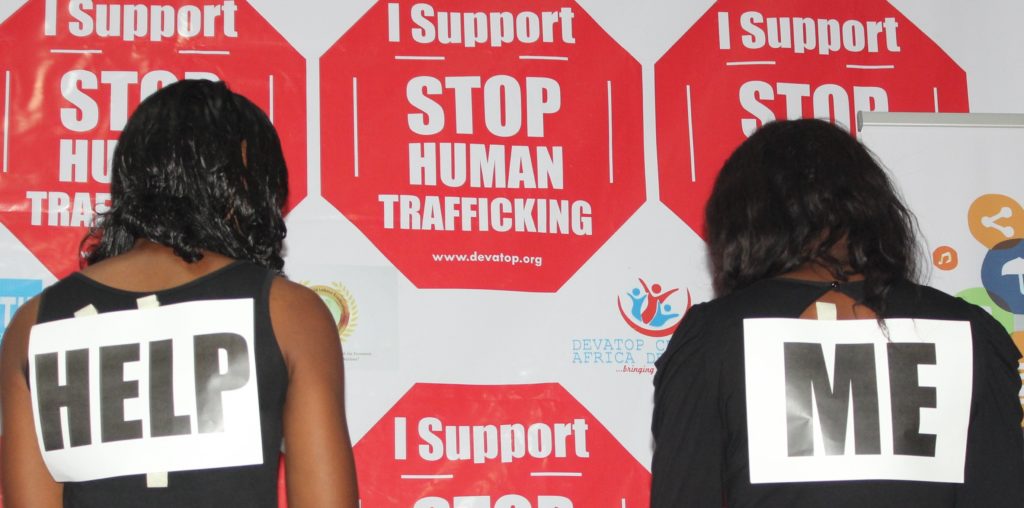Human Trafficking by Dawuda Amafojim

Time and again we have heard of this theme in books, as a discussion topic over the media but for the sake of clarity, human trafficking is modern-day slavery, the illegal exploitation of a person using any means possible to acquire the desired kind of labour against the will of the person trafficked. It is agonizingly frustrating and unexplainable how this evil tends to keep evolving with time and technology. Trafficking victims are men, women and children of all ages, races, and ethnicities/ nationalities. This means no one is safe from the clutches of human trafficking. According to research data, human trafficking is everywhere with about 40.3 million people who are exploited around the world. It is estimated that human trafficking yields more trillions of dollars of income each year. It is a very profitable crime with fatal consequences.
Now human trafficking comes in different forms, to mention a few; sex trafficking, forced labour, organ trafficking, child slavery, and forced marriage etc. It is known to be low risk but an immensely lucrative and organized transnational crime after drug trafficking and has its core financier- crooked scouts and fraudulent public officials who are always let off the hook generally because of their influence and backing. Worldwide integration has brought forth ways completely devoted to giving transportation, fake documents, legal, financial and accounting assistance. Since all this involves money and hopes for a better life, we can easily deduce that poverty is at the core of human trafficking. Desperation, illiteracy, fear and hopelessness has pushed many into the hands of exploiters, some with false promises of a better life. And because of the shady characters of law enforcement officers, victims reject the idea of seeking help
Illegal exploitation of humans is pretty much an organized industry with both increasing demand and supply. Nations can team up to shape a uniform data on illegal exploitation. Security at the country’s borders ought to be fixed to counter transnational trafficking. Instructional courses ought to be given to law enforcement officers.
The absence of political will to promptly address the underlying drivers of human trafficking has led to its development. Governments should understand that each individual has the rights to life, which incorporates the right to food, education and employment. In developing countries, to battle these issues, it is essential to have a profound comprehension of the financial, political and social structures in the country. States can set up commissions, alongside NGOs, to develop solutions. This will help in recovery measures. Each individual can contribute to this by revealing dubious exercises to experts on hotline numbers.
In conclusion, who should be blamed for human trafficking, in a world where money decides which level you are on the social pyramid, where the head honcho decides who eats and who doesn’t so the struggle for survival is dire? The susceptible humans who would do anything to survive or the callous ones who go to extreme measures to get what they want? It is like talking to a brick wall. When will these voices be heard? But we will keep banging on these walls, hoping that they will be broken down one day and we’ll be heard, saying ” we need a world where one is not regarded as an item that can be sold or purchased based on inhumane desires or pleasures and momentary happiness of another but as a human with equal rights and justice”. So together, let’s rise and say no to HUMAN TRAFFICKING.
Note: This article is published as written by the writer. It was selected as the third among the three best articles of the TALKAM Human Rights Article Competition
